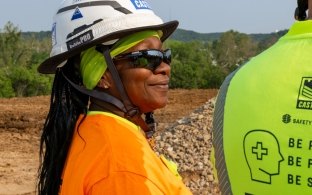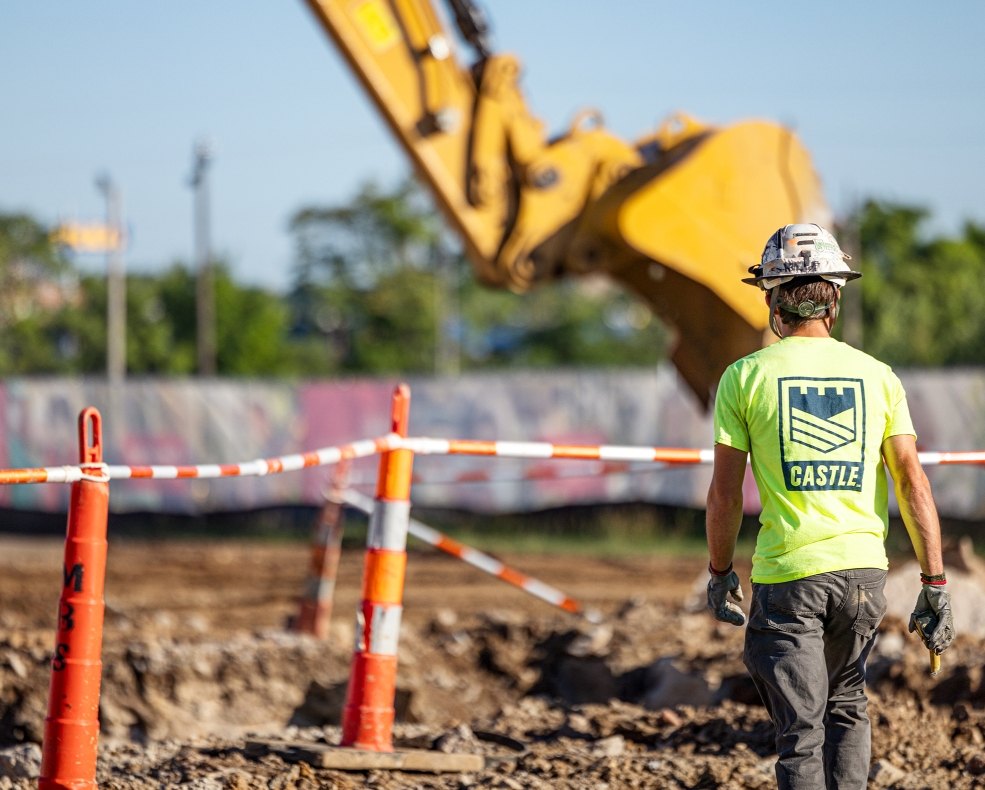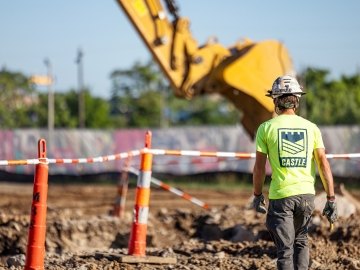Omaha's Economic Development Grows From the Ground Up
For over two decades, Omaha has been the envy of many American cities. Despite nationwide economic turbulence, Omaha's population has grown 13% since 2000, and a remarkable 19% from 2010 to 2020.


For over two decades, Omaha has been the envy of many American cities. Despite nationwide economic turbulence, Omaha's population has grown 13% since 2000, and a remarkable 19% from 2010 to 2020. During that time, the city has supported the continued growth of Fortune 500 and Fortune 1000 companies while attracting new industries to the region.
Omaha's strategic urban development and growth have positioned the community for long-term prosperity. This growth makes it a key region for experienced commercial and civil construction experts.
Strong Foundations: Omaha's Growing Population Base
Omaha was not always seen as such an attractive destination. For over a century, Omaha and the state of Nebraska lagged behind the national annual growth rate. To give you an idea, for the 20 years from 1971 to 1991, the city's population increased by less than a single percentage point. But that’s old news, and the eight counties that make up the greater Omaha area are now expected to grow to 1.1 million people by 2035.
Why Are People Moving to Omaha?
The reasons for moving to Omaha include the socioeconomic benefits the city offers its community. For example …
- A low cost of living – Omaha's cost of living is 9.2% lower and housing is approximately 16% lower than the national average. In 2016, Omaha was named one of the most affordable places to live in the US.
- A family-friendly culture – Omaha was named the seventh-best city for families by Forbes and the 14th-best place for families by U.S. News thanks to a low crime rate, exceptional schools, short commutes and affordable housing.
- Low unemployment – Businesses large and small have relocated or expanded operations in the Omaha metro area to access the city's workforce of educated and hard-working residents. Job creation in the city increased 16% from 2020 to 2022. Over 39% of Omaha residents have a bachelor's or graduate degree, and that’s only expected to increase as more millennials bring their families to the area.
- A stable economy – With several major hospitals, a thriving insurance and financial industry and construction companies ready and able to provide infrastructure for steady growth, Omaha has a broad and deep economic base. This leaves the city less prone to downturns and provides more stability.
Omaha's Population Growth During the Pandemic
The historic rise of remote work contributed to Omaha's COVID-19-era population boom. Over the course of the pandemic, between 2020 and 2023, the city's population increased by over 4%, bringing in more than 30,000 new residents. In 2021, at the height of the pandemic, the city had a record-low 1.9% unemployment rate. Many newcomers were young families with professional careers and high incomes. The increased population base helped insulate the area from the worst of the 2020 recession.
Related: Bobby Humphrey Is Making His Mark in Omaha
Omaha's Economic Expansion and New Construction
The Greater Omaha region's economic boom is centered on two key industries.
1. Finance and Insurance
Omaha's finance and insurance sectors grew 34.7% in just five years compared to 3.4% national growth and grew 28% in 2022. In addition to the eponymous Mutual of Omaha, the city is home to First National Bank, TD Ameritrade, Physicians Mutual Insurance Co., Bank of the West, and Blue Cross & Blue Shield of Nebraska, all of which employ more than 1,000 people.
Omaha is also the longtime home of Berkshire Hathaway, the 7th-largest company in the US and an employer of more than 8,200 Omahans.
2. Healthcare
Omaha's healthcare sector grew 5.8% in the past five years, more than double the national average. Three healthcare organizations employ more than 5,000 residents in Omaha:
- Nebraska Medicine
- CHI
- Methodist Health System
- Other core industries in Omaha include manufacturing, agribusiness and information technology.
Commercial Construction Projects in the Heart of the City
The keystone of Omaha's urban development is its downtown. Anchored by the 44-story Mutual of Omaha Tower, the city is invested in a downtown streetcar system to provide public transportation for the growing population.
Other noteworthy projects include:
- The $600 million renovation and expansion of the Omaha Airport.
- The $325 million investment in developing The RiverFront. The 72-acre project will link three parks with a riverside walkway and include a Performance Pavilion and a STEM interactive family museum.
- The new $750 million Google data center, the third such project in the region.
- A $66 million residential complex for The University of Nebraska Medical Center meant to meet the growing demand for medical student housing.
Omaha’s Urban Development – A Bright Future on the Missouri River
Comprised of eight regional counties, the Greater Omaha Economic Development Partnership is committed to growing Omaha's economic base in several industries, including healthcare, finance and technology. The city’s growth is no accident and development has been supported by a mix of public and private entities working to establish Omaha as the center of commerce in the Plains.
With Omaha’s cost of doing business being 12% lower than the national average – balancing social services with low tax rates – it’s easy to see why industries are choosing to set new roots in the city. Omaha also operates a commercial real estate and development program to make land and property acquisitions easy for businesses.
Build Your Base in Omaha with Castle Contracting
As an industry leader in commercial construction and site development, Castle welcomes businesses to this thriving city. We've worked on dozens of projects in Omaha and offer clients a range of services, from utility mapping and earthmoving to development, designed to get your project off the ground. Our team specializes in site preparation to ensure your build starts with a strong and well-understood foundation. Contact our Omaha office today to learn more about what we do.









